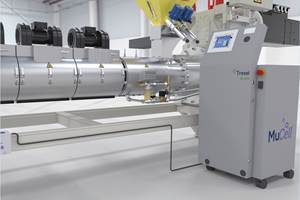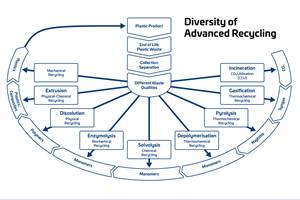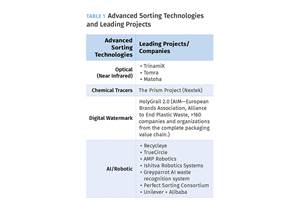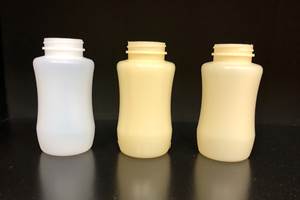Chemical and Mechanical Recycling Can Coexist. Will They?
Emerging technologies present advantages and challenges
There seems to be little doubt that chemical or molecular recycling (pyrolysis and a magnificent variety of other technologies) will be a big part of the plastics recycling industry in the near future. The EU looks to increase chemical recycling capacity to 3.7 million ton/yr by 2030. The largest chemical companies in the world are getting involved: BASF, Sabic, Exxon, Shell, etc. This morning, Dow and Mura held a press conference on a planned facility in Bohlen, Germany, and teased future announcements on facilities in Europe and the US.
A common refrain among commentary from leaders and spokespersons is that mechanical recycling is still the preferred method for recycling plastic, with the new technology they are championing picking up for grades and materials that can not be mechanically recycled, or at least not economically (an important distinction).
This makes a lot of sense. For one thing it seems wasteful to replace recycling streams that are largely successful with existing infrastructure. PET bottles, for instance. Existing processes are in place that are mechanically recycling a large portion of the post-consumer PET bottles, and we know rates can be much higher because they already are in Europe, where collection is more effective.
Another consideration is the low environmental impact of mechanical recycling. Chemical recycling’s flagship process, pyrolysis, requires high temperatures and therefore a significant amount of energy. There are other outputs, but the one that has gotten the most study is carbon. Life cycle analyses place pyrolysis somewhere between mechanical recycling and landfill, in terms of carbon footprint.
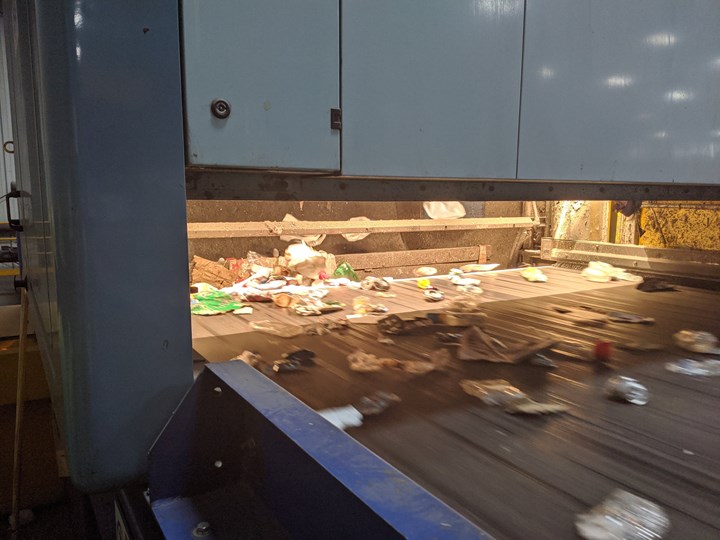
A machine at my local MRF picking PE bottles out of a stream of mixed waste. Purity is critical to success of mechanical recycling processes, and the physical form of a bottle is suited to sorting.
It seems only natural that chemical recycling be a backstop there. Where mechanical processes are challenged by material type, grade, degradation, or contamination; pyrolysis or other new processes can step in, take it back to monomer, and keep the waste out of the landfill. As time goes on, as collection rates improve, as brands meet their 30% recycled content goals; mechanical recycling will get more challenging. Undoubtedly, mechanical recycling will also continue to get better at dealing with degradation, but this race is another source of uncertainty. It’s no risk to say recycling technology will improve, recycling economics are harder to predict.
According to a recent ICIS report, the price difference between bales of mixed polyolefin and HDPE mono-material has hit a record low in Europe. The analysis, by Mark Victory, attributes this partly to pricing support provided by chemical recyclers, for whom a mixed bale is as good as any, picking up the slack from a dip in purchases by mechanical recyclers.
It could well be that in the short term the mechanical recyclers were not buying because they had all the recycling they can use and, great, the plastic didn’t go to waste. It’s only a problem if the pricing pressure is persistent and dissuades investment in mechanical recycling. But it shows that pressure exists. Could it have different results in a different situation? I wonder what would happen in a large non-EU country with no carbon tax.
It's appealing to imagine a future mosaic of recycling technologies, with enhanced collection and sorting distributing exactly the right material type and grade to exactly the right tile. It’s absolutely achievable, but it will take care, it would be quite a stroke of luck if it just happened that way.
Related Content
Foam-Core Multilayer Blow Molding: How It’s Done
Learn here how to take advantage of new lightweighting and recycle utilization opportunities in consumer packaging, thanks to a collaboration of leaders in microcellular foaming and multilayer head design.
Read MoreAdvanced Recycling: Beyond Pyrolysis
Consumer-product brand owners increasingly see advanced chemical recycling as a necessary complement to mechanical recycling if they are to meet ambitious goals for a circular economy in the next decade. Dozens of technology providers are developing new technologies to overcome the limitations of existing pyrolysis methods and to commercialize various alternative approaches to chemical recycling of plastics.
Read MoreRecycling: What's Ahead in Advanced Sorting Technology
As the industry tries to ramp up recycling, there are several innovative sorting solutions in the offing—ranging from enhanced optical sorting technologies and chemical tracers to advanced solutions based digital watermarks and artificial intelligence.
Read MoreHow to Extrusion Blow Mold PHA/PLA Blends
You need to pay attention to the inherent characteristics of biopolymers PHA/PLA materials when setting process parameters to realize better and more consistent outcomes.
Read MoreRead Next
Advanced Recycling: Beyond Pyrolysis
Consumer-product brand owners increasingly see advanced chemical recycling as a necessary complement to mechanical recycling if they are to meet ambitious goals for a circular economy in the next decade. Dozens of technology providers are developing new technologies to overcome the limitations of existing pyrolysis methods and to commercialize various alternative approaches to chemical recycling of plastics.
Read MoreLead the Conversation, Change the Conversation
Coverage of single-use plastics can be both misleading and demoralizing. Here are 10 tips for changing the perception of the plastics industry at your company and in your community.
Read More

















.png;maxWidth=300;quality=90)
